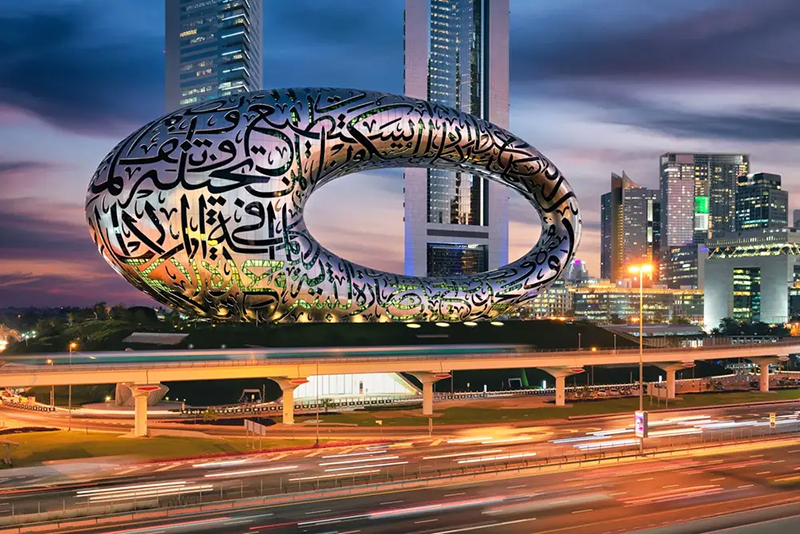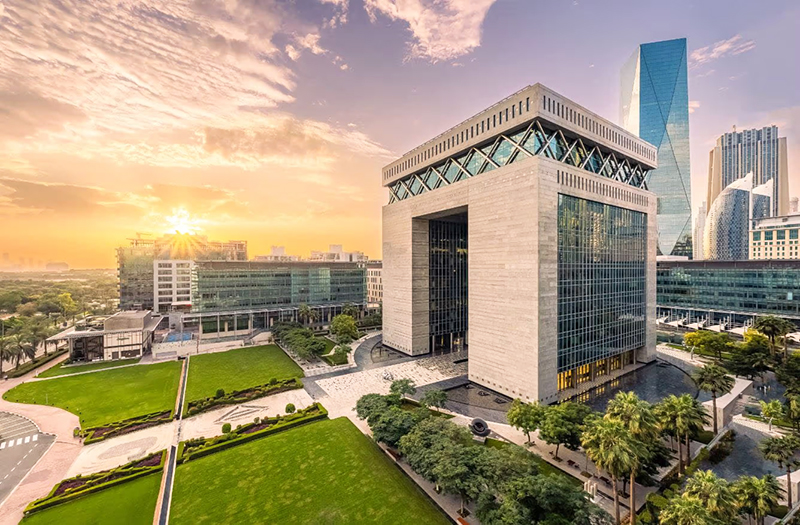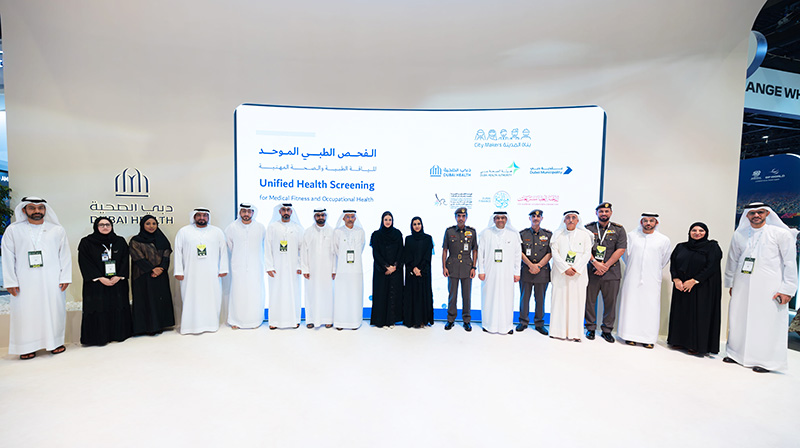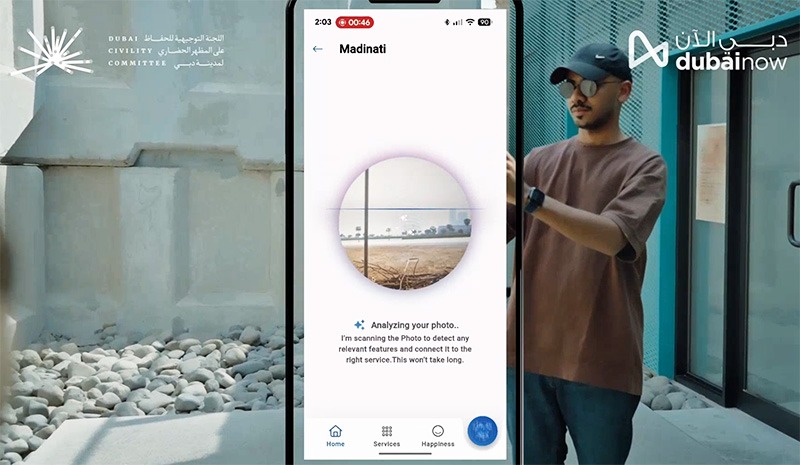
Over a century ago, the German philosopher Friedrich Nietzsche warned of a “giant machine run by dwarfs”, a metaphor for how bureaucratic systems can grow unwieldy and overpower the people they were meant to serve. Sociologist Max Weber likewise saw bureaucracy as necessary for fairness and efficiency, but cautioned it could become an “iron cage” that traps human creativity in routine. Those cautions resonate today as modern governments grapple with administrative bloat that, in many cases, has outgrown its original purpose.
In the era of smartphones and instant services, what began as a tool to organize society can morph into a maze that stifles initiative and slows progress. It is increasingly intolerable for citizens to be bogged down by paper forms and endless rubber-stamp signatures in short, to have innovation measured by the number of bureaucratic stamps on a document. This is the challenge the United Arab Emirates now vows to overcome.
The UAE has spent the past decade digitizing thousands of government services and even launched a nationwide “Smart Government” initiative in 2013. Yet even in this high-tech bureaucracy, pockets of antiquated procedure survived legacy paperwork and redundant steps that remained a drag on efficiency. Tackling these stubborn choke points required more than piecemeal tweaks; it demanded a fundamental reimagining of how government works. In February 2024, the UAE government answered that call by launching the “Zero Bureaucracy” program, a sweeping initiative to reset administrative complexity back to zero and recenter public services around the citizen.
A Bold Mandate to Slash Red Tape
Unveiled at a special government gathering in early 2024, the Zero Bureaucracy program came with concrete targets: every ministry and federal agency was directed to cancel at least 2,000 existing government procedures and reduce processing times by 50% within one year. The mandate, announced by UAE Prime Minister Sheikh Mohammad bin Rashid Al Maktoum, was clear in its purpose, “procedures are intended to serve people and make their lives easier,” he said, noting that excessive bureaucracy is a primary obstacle facing any government’s development efforts. Eliminating needless red tape and speeding up services, Sheikh Mohammad affirmed, are “the two pillars of our future strategy” for governance.
This push to “zero out” bureaucracy is as much about culture as it is about rules. As Minister of Cabinet Affairs Mohammad Al Gergawi explained, the initiative is designed to deliver “the simplest, fastest, easiest, and most efficient procedures,” thereby raising the competitiveness of the economy and enhancing people’s quality of life. In other words, government performance will no longer be judged by how many steps or documents it demands, but by how seamlessly those steps can be streamlined into a smooth citizen experience. “Government procedures are not a measure of work quality so much as a measure of their ability to be simplified and provide a seamless experience to citizens,” Al Gergawi said, underscoring the leadership’s philosophy behind the reform.
In practice, officials have been turning once-tedious tasks into quick, digital transactions. Renewing an Emirati passport, for example, used to require multiple office visits and lengthy paperwork; today it is a fully online process completed in minutes through a secure digital ID login. The application form for a national ID card was pared down from dozens of fields to just six basic questions. A service bundle called “My Family” slashed the steps for starting a new family, which formerly entailed 16 separate in-person appointments, into a single paperless visit. Even the procedure for certifying academic degrees, traditionally a bureaucratic ordeal, has been reduced to an e-form with only two fields to fill. Crucially, officials note, the value of these changes lies not only in the number of steps eliminated, but in the time given back to the public. By achieving “zero paper, zero waiting,” the government becomes “a daily partner in citizens’ wellbeing” rather than an obstacle, with time saved emerging as the new currency of public service.
Re-engineering Government: Tech and AI at the Core
To implement this vision, the UAE immediately mobilized its ministries to overhaul their workflows. Every government entity received instructions to merge duplicative steps, simplify forms, and shift paperwork onto unified digital platforms. For instance, rather than forcing residents to shuttle between multiple offices, many services are being consolidated so that all required documents can be submitted in one place. Workshops and training sessions have been rolled out to instill a new mindset among civil servants, and a system of incentives rewards agencies and employees who cut the most red tape. The message across the bureaucracy is clear: simplifying processes is now a core mission, not an afterthought.
Artificial intelligence has become a key component of the Zero Bureaucracy effort. In one initiative, UAE University convened experts to demonstrate how AI can sharply boost government efficiency, with specialists concluding that AI-driven solutions will directly simplify and accelerate administrative transactions. A new AI-powered system is being piloted to automatically examine submitted documents and track the status of applications, flagging any issues in real time. By handling routine checks and validations, this system cuts turnaround times and minimizes human error, making government operations faster, more accurate and more flexible. From chatbots that guide users through services to machine-learning algorithms that optimize resource allocation, smart tech is being woven into the fabric of public administration.
Behind the scenes, the government is also bolstering its digital infrastructure to sustain these gains. The Ministry of Human Resources and Emiratisation, for example, migrated its services to a unified cloud network (known as FEDNet) to enhance security and scalability. It has also introduced integrated service packages such as a new “Work Package” bundle that deliver multiple related services through one online interface with greatly simplified requirements. Across the board, data is being unlocked from departmental silos and made to flow through shared platforms. The Zero Bureaucracy program even launched initiatives like a dedicated “Zero Bureaucracy Month” and an annual Government Zero Bureaucracy Award to spark friendly competition in innovation. By gamifying the hunt for needless procedures, the UAE is tapping into the creativity of its public servants to find ever more ways to streamline services.
Global Models: Singapore, Estonia and Sweden
The UAE’s drive to eliminate red tape parallels efforts in some of the world’s most digitally advanced nations, each with its own branding. Singapore’s government has packaged its reforms under the “Smart Nation” banner, Estonia promotes its famously wired administration as “e-Estonia,” and Sweden describes its vision as achieving a “fully digital government.” Different names aside, all share the same goal: to neutralize the friction of paperwork between citizen and state by leveraging unified digital platforms and radically simplified procedures. In essence, they aim to turn bureaucracy from a paper chase into something as seamless as a tap on a screen.
Singapore’s experience offers a glimpse of where the UAE is headed. The core of Singapore’s approach is its national digital identity system, Singpass, which covers 97% of the population and grants users one click access to more than 2,000 services across government and business. Instead of repeatedly entering personal data for each transaction, Singaporeans can consent to share their verified information across agencies, eliminating the need for redundant forms or physical documents. A citizen’s data, from birth records to income, is securely stored and can be pulled by any service, from filing taxes to applying for housing, with the individual’s authorization. This interoperability has made public services in Singapore remarkably efficient and user-friendly.
Estonia pushes the envelope even further. Under Estonia’s “Once Only” principle, no citizen or company is ever asked to provide the same piece of information to the government twice. Key data (like names, addresses, or business registrations) reside in secure government databases, and all public agencies exchange information through a central backbone platform called X-Road. As a result, Estonians can complete most core services, voting, obtaining medical prescriptions, filing customs declarations, starting a business, online in a matter of minutes. Every interaction is logged transparently, and residents can even see which officials have accessed their records, reinforcing trust in the system. Supported by ubiquitous digital ID cards, strong cybersecurity, and AI-assisted services, Estonia’s model consistently ranks at the forefront of global e-governance indicators.
According to the United Nations E-Government Survey 2024, the payoff of such digital reforms is clear. That year’s rankings placed Denmark, Estonia and Singapore as the top three countries worldwide in e-government development, all earning “very high” scores for online services. The UAE, notably, also secured a spot in the very high-performing tier 11th overall globally reflecting its progress in digitization and service delivery. The UN report highlighted that leading governments have armed themselves with unified digital identity systems, integrated data-sharing platforms, and effective use of emerging technologies like AI to better serve their people. At the same time, it cautioned that even these frontrunners face challenges: from plugging infrastructure gaps in rural areas to safeguarding sensitive data and ensuring digital services are inclusive for all citizens, including the less tech-savvy and the elderly. These global lessons are informing the UAE’s own journey as it benchmarks its bureaucracy-busting efforts against the world’s best.
Accountability and Challenges
Translating an ambitious vision into everyday reality requires constant follow-up. The UAE’s leadership has built accountability into the Zero Bureaucracy agenda, tasking officials with measuring outcomes and sustaining momentum. The Ministry of Economy, for example, reported that during 2024 it executed a comprehensive action plan to streamline its internal procedures in line with the initiative’s goals. Now, the ministry is preparing a thorough assessment to gauge how these improvements have affected customer satisfaction with its services. Similar evaluations are expected across government, ensuring that the push to cut red tape is actually yielding faster permits, licenses, and approvals on the ground.
To incentivize success, the government has introduced tangible rewards for innovation. A national Zero Bureaucracy Award was launched to recognize teams and agencies that achieve outstanding results in simplifying procedures. The awards span seven categories, honoring everything from the best cross-department teams to the most impactful ideas for the community with a total prize pool of 7 million dirhams (about US $1.9 million) for winners. This considerable reward underlines how serious the UAE is about reinventing its bureaucracy. In the award’s first cycle, more than 600 teams from 30 government entities competed, an unprecedented level of participation that speaks to the enthusiasm for reform. By celebrating bureaucratic simplification as an achievement, the government is reinforcing that cutting red tape is the new norm for public service excellence.
Yet the transformation also brings new challenges and risks. As over 950 government services have moved onto cloud computing platforms across more than 100 agencies, data security and privacy have become paramount concerns. Dubai’s Cyber Security Center has warned that handling sensitive citizen information in the cloud demands strict adherence to international security standards. Robust cybersecurity frameworks are being implemented to protect data and maintain public trust, a critical step as digital services become the backbone of governance. Another focus area is ensuring that different branches of government work in unison. The UAE’s federal system includes numerous local and national authorities, so avoiding duplicated efforts and contradictory procedures is essential. To that end, the Prime Minister’s Office and other central bodies have convened extensive inter-agency workshops, bringing together over 300 officials from the public and private sectors to improve coordination. By breaking down institutional silos, these workshops aim to forge a more integrated, effective model of governance that delivers seamless services regardless of which department is involved.
Crucially, the digital drive must remain inclusive. Officials are mindful that not everyone is equally comfortable with technology, and that some segments of society such as the elderly or those without ready internet access could be left behind if services go fully online. To counter this, new services are being designed with multiple access channels and user-friendly interfaces, ensuring that the benefits of Zero Bureaucracy extend to all citizens. From mobile apps with assistive features to one-stop service centers that help bridge the digital divide, the UAE is striving to make its administrative revolution a story of inclusion as well as efficiency.
Toward a Future-Ready Government
At its heart, the Zero Bureaucracy initiative represents a fundamental rethinking of government efficiency for the 21st century. The metric of progress is no longer the size of an administration or the volume of its regulations, but rather the ability to minimize the time and cost between a citizen’s request for a service and the tangible result of that service. When all records are unified on a single data platform, when AI algorithms help drive day to day decisions, and when continuous performance feedback is built into every process, public agencies can shift their role from pushing paper to delivering real value. In this new paradigm, an effective government is one that almost invisibly gets things done swiftly, transparently, and with minimal burden on the public.
Such a transformation also signals a shift in administrative philosophy. The government’s role evolves from mere compliance monitor to innovation enabler, as rigid rules give way to a culture of continuous improvement. Bureaucratic complexity is replaced by agile cycles of refinement, and customer satisfaction becomes a key performance indicator, tracked as closely as any economic or financial metric. Ultimately, eliminating paper-based barriers is not an end in itself, but a means to an end: it is a long-term investment in a knowledge-based economy where the energy of society is redirected from filling forms and waiting in lines to more productive and creative endeavors. By championing “zero bureaucracy, 100% efficiency,” the UAE is betting that a government of the future is one that feels nearly frictionless a partner in progress that lets citizens and businesses focus on innovation and growth, rather than on navigating the halls of administration.









